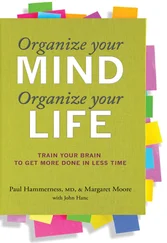“Fair, Candidate Chance? There are a great many things you’re not taking into consideration, here.”
“But I see things I didn’t see then, sir. I know things — about Harriet, about Caroline — things I had no way of knowing then.”
“Had you looked a little harder, you might have at least suspected them, Candidate.”
“I gotta go back.”
“Out of the question.”
“What if I don’t comply?”
“Excuse me?”
“What will happen to me if I go down there again?”
“First, I’d say you better check your coordinates. That is, if you’re heading down anywhere. ‘ Over there’ might be a little more accurate but still insufficient. ‘ In there’ is probably the closest.”
“You know what I mean, sir. What will happen?”
“If you go rogue?”
“Yeah.”
“Let’s just say there are measures in place. It’s not so different from your marines, Major. Think AWOL.”
“But what will happen? Will it affect them?”
Charmichael redoubles his meaningful gaze. “In a word, Candidate Chance: nothing. Nothing will happen.”
“I see, sir.”
“To you, that is, Candidate. Nothing will happen to you. Things will still happen. Just not to you. Do we have an understanding?”
“Uh, yessir. I believe we do, sir.”
“Good, then. Consider yourself warned.”
“Yessir. I will.”
“As you were,” says Charmichael, waving him off. “And, Candidate?”
“Yessir?”
“The salute is unnecessary.”
“Yessir.”
April 16, 1959 (HARRIET AT TWENTY-TWO)
Mrs. Bernard Chance, it has a certain ring to it. Anyway, it’s only a name — perhaps not the name you intended to make for yourself. But this is not your identity we’re talking about, this is a logical step. A practical one. This isn’t about your independence, this is about the rest of your life. This is about fulfillment. The kind of fulfillment no job can offer, at least not the jobs available to you. You knew from the start you’d never be a lawyer or a judge. You were destined for an administrative role. So, why not marriage? It turns out, your independence, like your salary, had a ceiling all along.
Besides, you’re pregnant.
Oh, but don’t despair, Harriet. Stolid, capable Bernard, whether he knows it or not, is willing. And he’s a man who knows a thing or two about duty. About commitment and sacrifice, plumbing and electricity. And he’s not a man who asks a lot of questions.
Just think, a spring wedding in Seattle, at the Rainier Club! Indoors, thank God, because yep, you guessed it, it’s raining pitchforks. The parking lot is a lake. The awnings are sagging. But nothing can dampen your spirits today.
You’re a gorgeous bride, Harriet — it’s true, look at the pictures. In your mother’s champagne-beaded dress, with the V-neck bodice, you cut an hourglass figure. You lost fifteen pounds starving yourself for this day. What’s more, you’re showing no outward signs of that little life taking hold inside of you, but it’s there, you can feel it, the promise of fulfillment glowing in your cheeks.
Let’s be honest, you’re marrying down, as they say, a state of affairs that your mother will frequently remind you of in years to come. You’re marrying a man who would sooner pick up a bowling ball than brandish a club or a racket. Though he had other plans for you, your father does not begrudge your decision to marry a janitor. At least he’s a damn good janitor. No, your father has spared no expense on the wedding. The arrangements are elegant, perfectly tasteful. Everybody but everybody is there. People you don’t know or can’t place. Charlie Fitzsimmons is there. The Times runs a lavish paid announcement for the daughter of prominent attorney and local dignitary, Harriman Nathan.
You can already smell the shrimp puffs as the procession gathers in the wings and the organ sounds its note. You’ve never been surer about anything, Harriet. Not that you haven’t overcome a few nagging reservations over the past year. But you’ve managed to paint an idyllic picture of domestic life for yourself. It all starts with a honeymoon in Niagara Falls. A tiny house of your own in Seattle’s north end, paid for with your own money, just you and Bernard. And baby makes three. Just think, this very Christmas, you’ll hang those stockings. But let’s not get ahead of ourselves again.
Your esteemed father, eyes misting as he leads you up the aisle, voice faltering as he gives you away, whispers to you that he could not be prouder. And there, beside you at the altar, is a man who knows what he wants, a man who speaks his mind and demands his just. A man who served his country. A man who has a center, whether it’s moral or habitual. A man who vows to honor and protect you, in sickness and in health. To have and hold you, to love you and cherish you, from this day forward, for better or for worse, for richer, for poorer, until death do you part.
Yes, Harriet, for the next fifty years you’ll eat what Bernard eats, vote how Bernard votes, love how Bernard loves, and ultimately learn to want out of life what Bernard wants out of life. Together you will see sickness and health. At times he will honor you. Occasionally, he will cherish you. Always he will protect you. But again, we get ahead of ourselves.
Right now, Harriet Nathan, that is, Harriet Chance, you are a beautiful bride.
August 13, 2015 (HARRIET AT SEVENTY-EIGHT)
Of course, Bernard’s still alive in her imagination — that’s only natural. Of course, she never heats the house above sixty-four degrees. Force of habit. Five decades of familiarity imprinted on her memory like a phantom limb. And yes, she still talks to him. These one-way conversations at the breakfast nook, or in bed, or while she’s rummaging through the junk drawer in search of a screwdriver have been a small comfort the past nine months.
But an actual physical presence, one that talked back, this could be problematic. How long before it happens in public?
Hectored by these thoughts, Harriet trundles her grocery cart ever so deliberately down the cereal aisle toward the All-Bran, her arthritic spine burning like fire and ice. Her shopping is light: an overripe cantaloupe, her calcium supplement, a quart of skim milk, three Eating Right single-serve entrees (including her favorite, beef portobello). Just enough to last her until the cruise.
Short as her list is, the grocery cart proves to be a burden. What, with its wobbly front wheel spinning uselessly on its axis, a quarter inch above the white tile, an imprecision that surely would have driven Bernard into a state of muttering contempt, all the more so because the ball bearings themselves, those stalwarts of angular contact, those silent bearers of axial loads, to whose manufacture and distribution the Major had devoted twenty-eight years of his professional life, are rattling around like so many marbles inside the wheel assembly.
“They couldn’t even get that right.”
“Shhh,” says Harriet, looking around the cereal aisle. “Not here!”
“Christ, if they’d just fit the damn bearings to the races properly.”
“Bernard, shush! Don’t make a scene.”
“Well, it’s like nobody gives a damn anymore. It’s all about saving a nickel.”
“Dear, your acid indigestion.”
“Reflux! They call it reflux, now. Indigestion wasn’t good enough!”
How many of these childish outbursts has Harriet endured over the course of the decades? Apparently, even death can’t stop them. Do they embarrass her? Yes, often. Do they try her patience? Yes, frequently. But the truth is, if only covertly, Harriet has agreed with Bernard’s grievances on nearly every count from lawn mowers, to stereo receivers, to family values — everything just seems to get worse. It’s true: they really don’t make them like they used to.
Читать дальше












